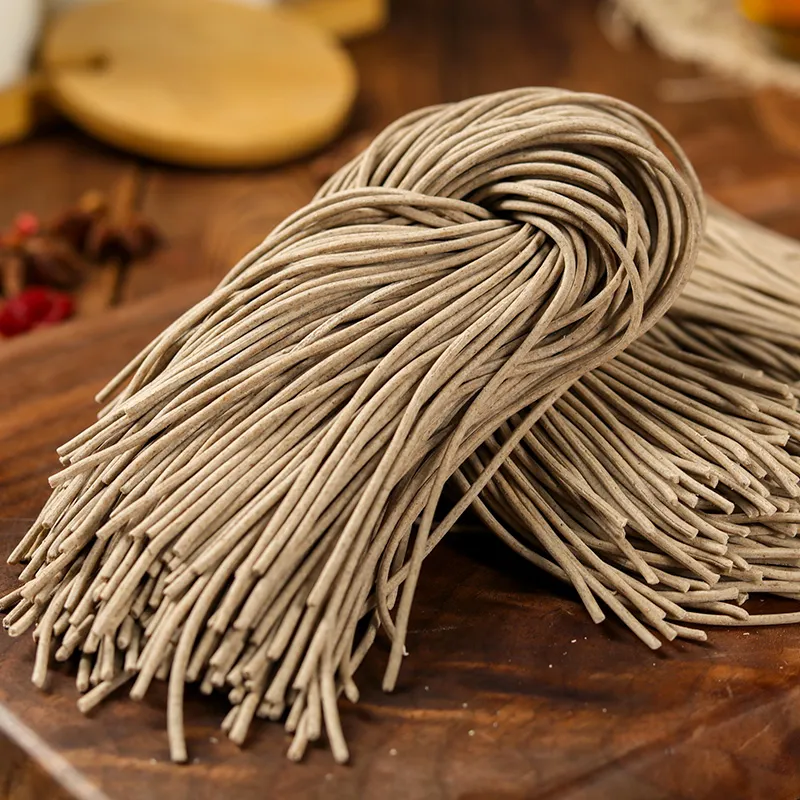Best Noodle Options for Managing Diabetes and Maintaining Healthy Blood Sugar Levels
What Noodles Are Good for Diabetics?
For individuals with diabetes, managing blood sugar levels is crucial, and dietary choices play an essential role in this. Noodles, a staple in many cuisines, can pose a challenge due to their carbohydrate content. However, the right type of noodles can be included in a diabetic-friendly diet. The key lies in understanding which noodles can be beneficial and how to integrate them into meal plans.
Whole Grain Noodles
Whole grain noodles, such as whole wheat spaghetti or soba noodles, are excellent options for diabetics. These noodles retain the bran and germ from the grain during processing, which means they have a higher fiber content compared to their refined counterparts. Fiber is beneficial for blood sugar control as it slows down the absorption of carbohydrates, preventing spikes in blood glucose levels. Whole grain noodles also provide essential nutrients like B vitamins, iron, and magnesium, contributing to overall health.
Legume-Based Noodles
Another great alternative is legume-based noodles, such as lentil or chickpea noodles. These noodles are rich in protein and fiber, which helps to stabilize blood sugar levels. For example, chickpea pasta offers about two times the protein and four times the fiber of traditional pasta, making it an excellent choice for those monitoring their carbohydrate intake. Additionally, legumes have a low glycemic index, meaning they release glucose into the bloodstream slowly, reducing the risk of blood sugar spikes.
Vegetable Noodles
Vegetable noodles, made from spiralized vegetables like zucchini (zoodles) or carrots, are a fantastic low-carb option for diabetics. These noodles are not only lower in calories and carbohydrates but also packed with vitamins and minerals. Incorporating veggie noodles into meals can significantly reduce the overall carbohydrate content of a dish while adding fiber and nutrients, which are crucial for managing diabetes.
what noodles are good for diabetics

Shirataki Noodles
Shirataki noodles, made from the konjac plant, are another excellent choice for diabetics. They are extremely low in calories and carbohydrates, making them a perfect substitute for traditional noodles. Shirataki noodles are mostly water and fiber, providing a filling but light option for those looking to maintain a healthy weight. They can easily absorb flavors from sauces and spices, making them versatile for various recipes. However, it’s essential to rinse them thoroughly before cooking to eliminate any odor.
Cooking Techniques
Regardless of the type of noodles chosen, cooking methods can also impact how they affect blood sugar levels. It’s generally recommended to undercook noodles slightly to maintain a firmer texture, as overcooking can increase their glycemic index. Pairing noodles with protein sources, healthy fats, and plenty of non-starchy vegetables can further help balance meals and control blood sugar. For instance, a stir-fried vegetable dish with whole grain or legume-based noodles, topped with chicken or tofu, provides a balanced plate.
Portion Control
Portion control is vital when consuming noodles, even the healthiest types. Measuring out servings according to dietary guidelines can help prevent overeating and manage carbohydrate intake effectively. A standard serving of cooked pasta is usually around one cup, but individual needs may vary depending on personal health goals and activity levels.
Conclusion
In summary, while noodles can be a concern for those with diabetes due to their carbohydrate content, choosing the right types can make a significant difference. Whole grain, legume-based, vegetable, and Shirataki noodles are all viable options that can fit into a healthy eating plan. By focusing on portion sizes and cooking methods, individuals with diabetes can enjoy a variety of noodle dishes while maintaining stable blood sugar levels. Remember, it’s always best to consult with a healthcare professional or a registered dietitian to tailor dietary choices based on personal health needs.
-
Is Whole Wheat Pasta Healthy?NewsMay.30,2025
-
Are Soba Noodles Good for Weight Loss?NewsMay.30,2025
-
Are Buckwheat Soba Noodles Healthy?NewsMay.30,2025
-
Are Buckwheat Soba Noodles Gluten Free?NewsMay.30,2025
-
Are Buckwheat Noodles Good for You?NewsMay.30,2025
-
A Healthy Way to Savor Soba and Spicy FlavorsNewsMay.30,2025
-
What Are Lanzhou Noodles?NewsMay.30,2025
Browse qua the following product new the we

















































































































